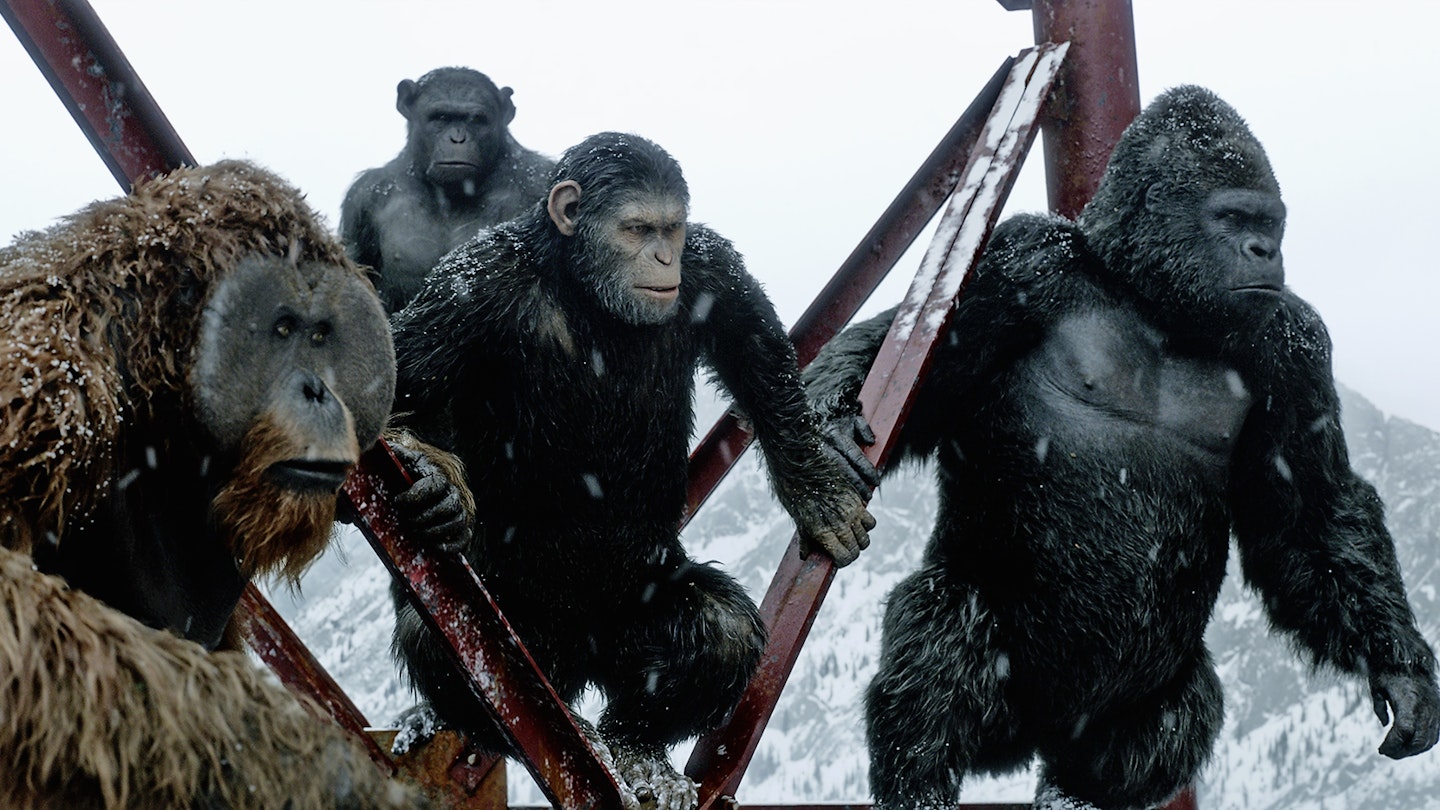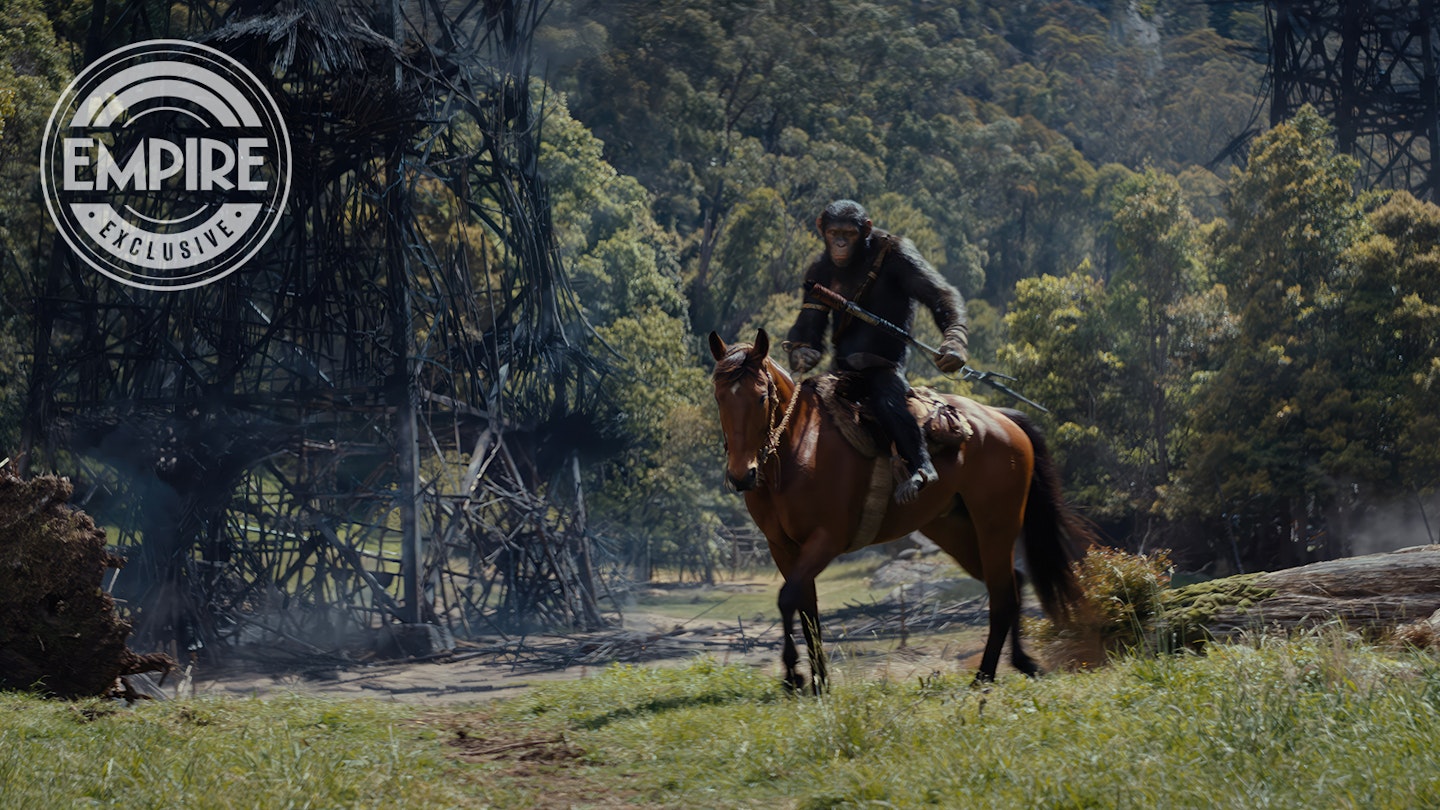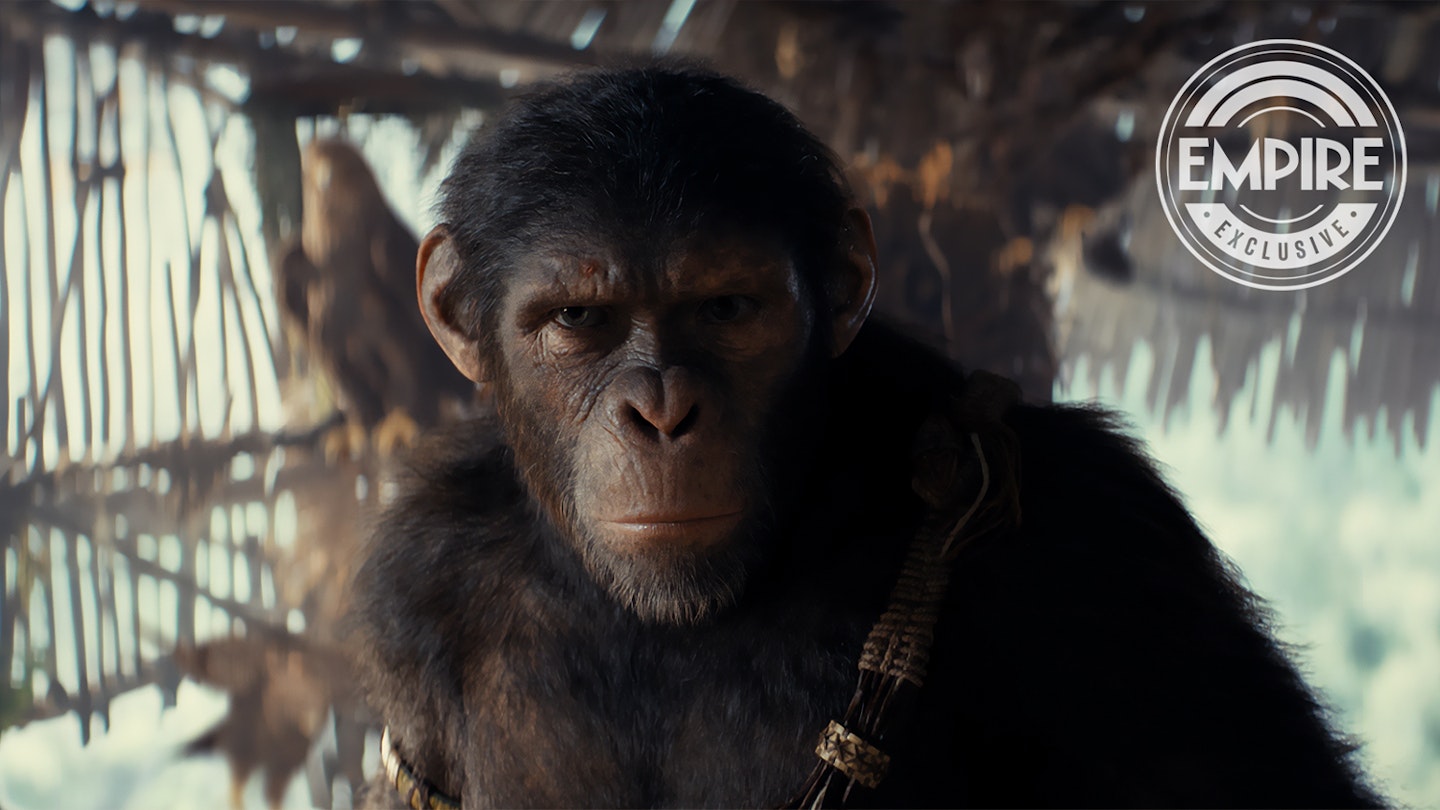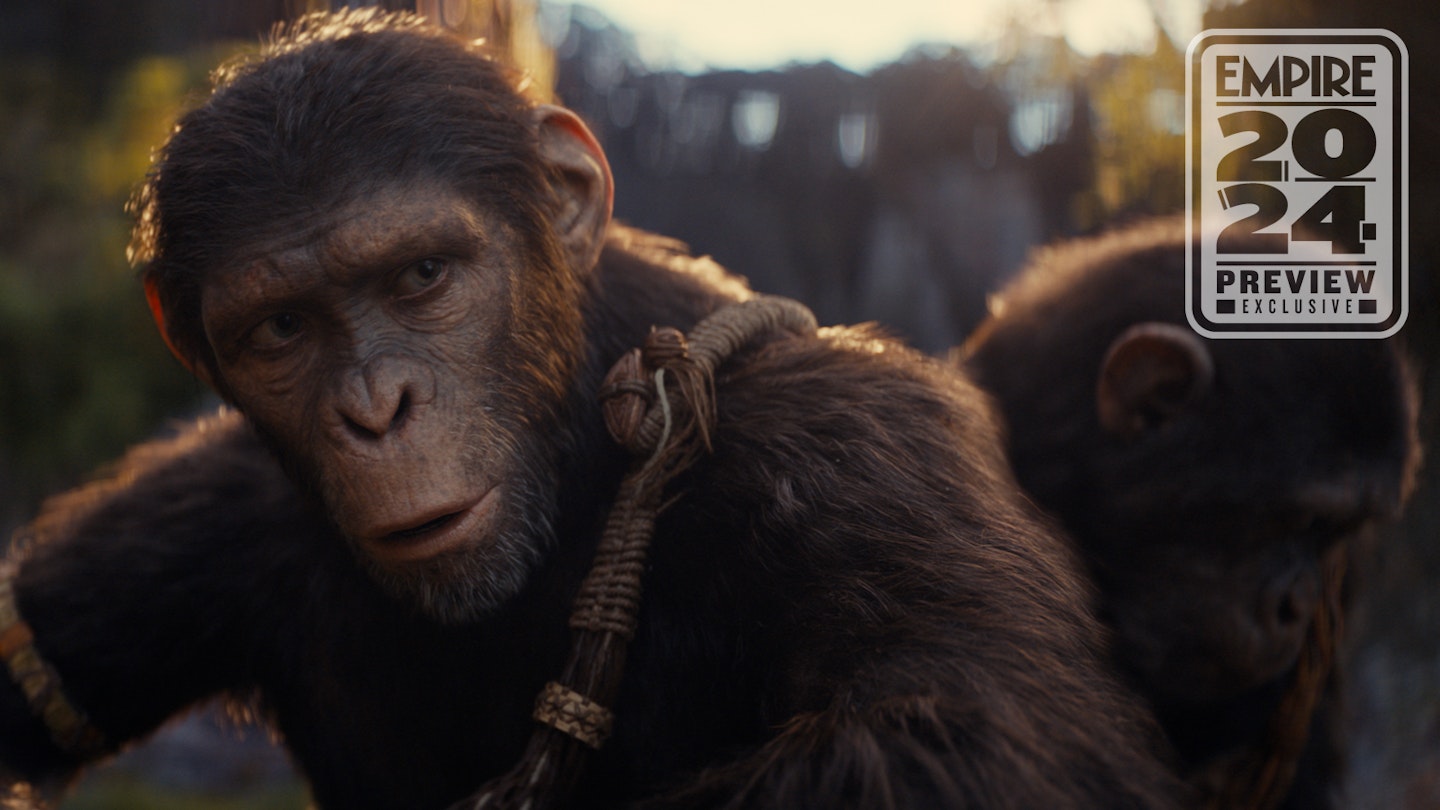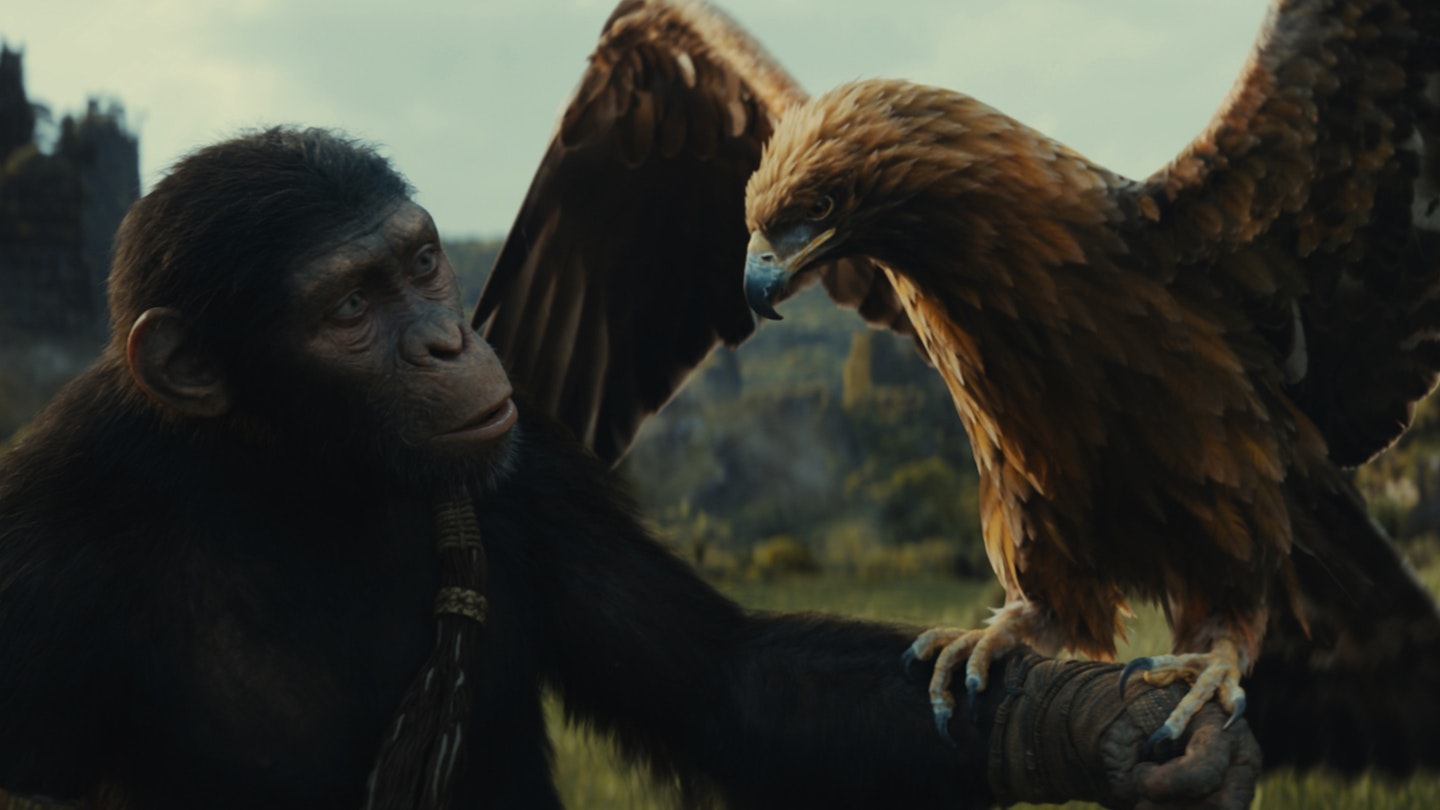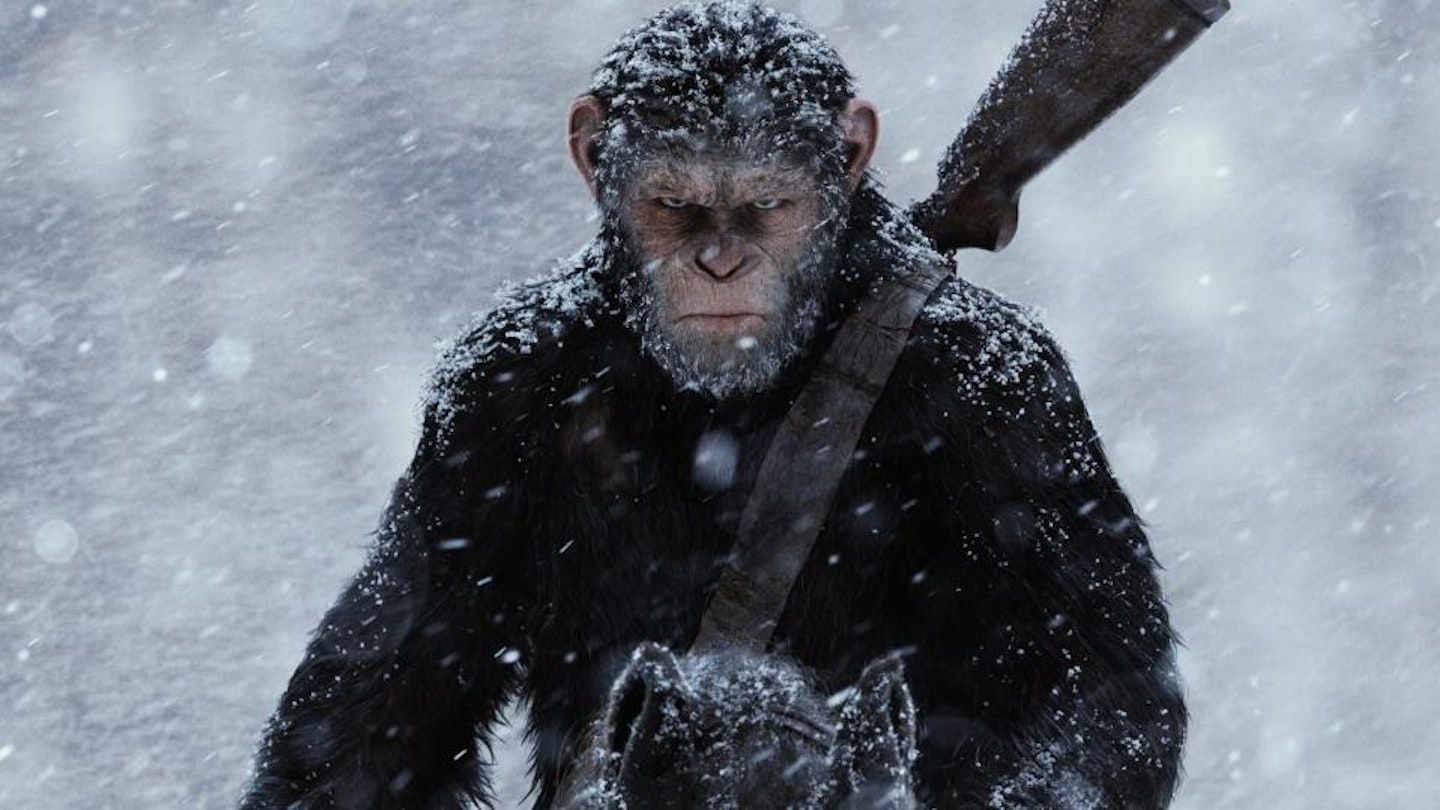Nomenclature has always been an issue for the Planet Of The Apes reboot series. The Apes’ Rise confusingly preceded their Dawn, which ended with a war. Meanwhile, this War, which follows the one in Dawn, contains little actual warfare but a fair bit of uprising.
Disappointed? Don’t be. After the last film’s ballistic finale, it would have been easy for Matt Reeves to sit back and hurl fur and fireballs at the screen for two hours as the battle between humans and hominids came to a head. But Reeves is no Michael Bay, and War is a more subtle beast than its title implies.
The film begins with an arboreal firefight and a camo-striped hit squad invading the apes’ abode. But Reeves soon shifts down a gear, placing the emphasis more on internal rather than external conflicts. Caesar spent Dawn preaching tolerance to a revenge-obsessed Koba (Toby Kebbell) but here, plagued by visions of his former friend, he falls into his own heart of darkness. Unable to set his grievances aside, Caesar — accompanied by Rocket (Terry Notary), Luca (Michael Adamthwaite) and gentle giant Maurice (Karin Konoval) — embarks upon a journey ‘upriver’ to kill Woody Harrelson’s swivel-eyed Colonel.
War is the second angry ape movie to homage Coppola’s ’Nam epic this year, following in Skull Island’s significantly larger (though still Notary-shaped) footsteps. Graffiti in the Colonel’s compound even spells it out, snatching the low-hanging pun from lazy journalists with a hastily scrawled ‘Ape-pocalypse Now’. But as the small group journeys, on horseback, through the mountains — picking up a mute human girl (Amiah Miller) along the way — the film more closely adopts the feel of a ’50s Western: its five riders setting forth into a sweeping new frontier. But while the bristling tree lines and jagged peaks of the Canadian Rockies make for a stunning backdrop, even nature’s beauty can’t hold a candle to Weta’s.
Dawn’s chest-thumping performance boldly declared the state of the digital art, dropping photoreal primates into a forest shoot with seamless precision. War’s chimp collective is no less impressive, wowing with its verisimilitude (marvel at the damp digital fur and snowy pixel pelts) and dazzling with its subtlety. The apes have never been more expressive, and while most still sign rather than speak (although Caesar’s diction has advanced in leaps and bounds), the emotion conveyed by their furrowed faces are worth a dozen pages of dialogue. “My God,” declares the Colonel, seeing Caesar up close for the first time. “Look at your eyes. Almost human.”
Serkis’ is a monkey who knows his business.
It’s no surprise at this point that Serkis’ is a monkey who knows his business. Cementing his credentials as one of the most gifted (and overlooked) actors currently working, Serkis not only captures the chimp physicality perfectly, but imbues Caesar with both elemental fury and a hard-edged compassion, further shaping the evolution that began two films ago. Harrelson, meanwhile, brings A-grade crazy to the nameless Colonel, whether ranting — Kurtz-like — about the human condition, or gazing down at his troops like a freshly shorn Immortan Joe. Starting out as a messianic crackpot, he’s lent both depth and pathos by an ingenious plot pivot that hints at how this series may one day brush snouts with the Hestonverse.
Apes initiate Steve Zahn also shines in a pleasantly comic turn as former zoo resident ‘Bad Ape’. In a goofy body-warmer and bobble- hat combo, Zahn brings a levity that has been painfully lacking from the series until now, and speaks to a far more varied emotional landscape this time around.
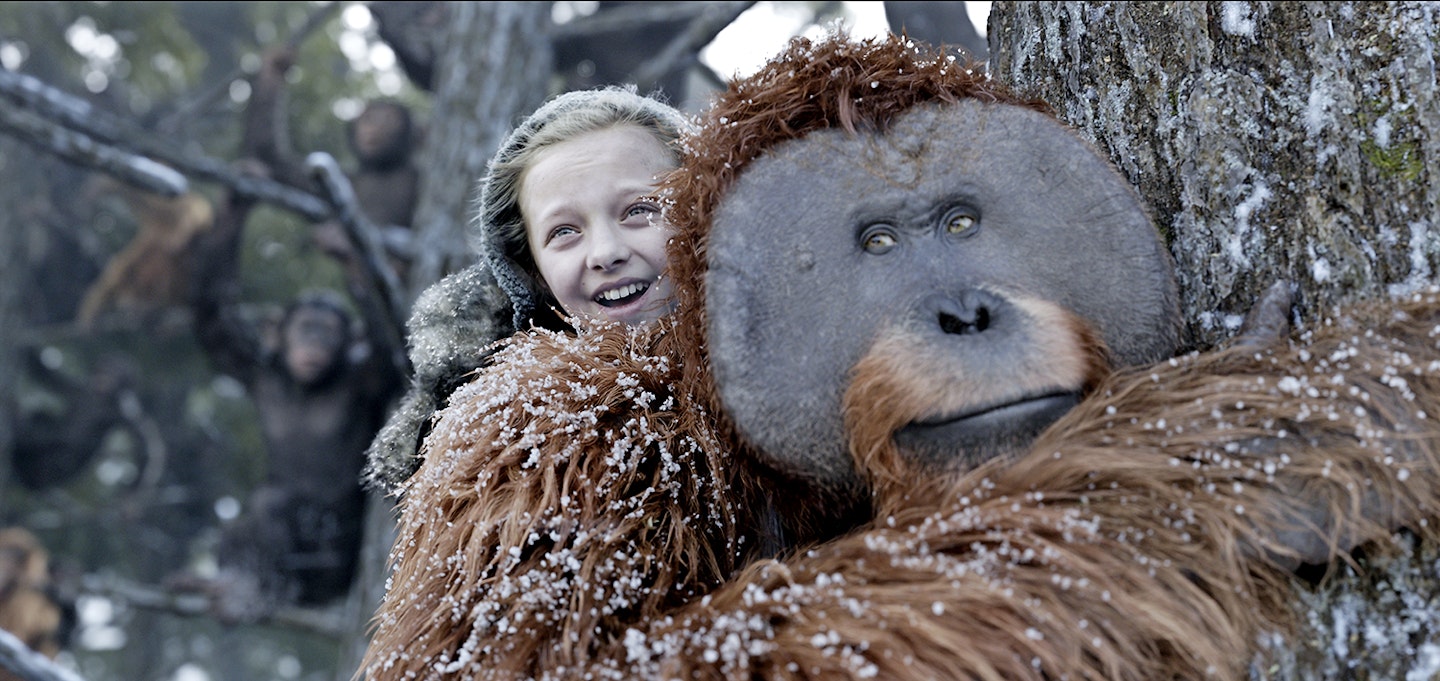
Instead of doubling-down on bleakness with the apes’ abusive captivity, Reeves opts instead for the lighter tone of a POW caper (‘The Great Esc-Ape’ is another slogan likely daubed on a wall somewhere). The future isn’t all grimness and genocide — it seems there’s also room for pratfalls, poo-flinging, and acts of surprising tenderness.
That this is a more introspective journey than advertised will frustrate those expecting to see an army of irate bonobos rain death upon their human oppressors. That’s not to say there isn’t excitement, nor that the finale lacks fire and brimstone, but the war of the title is primarily one of the soul. Even Caesar’s revenge, when it comes, is told with poignant restraint. The conflict here is one of morality, identity and the boundaries of humanity; all the guns and napalm, while present, are secondary to War’s purpose. A misnomer, certainly, but Existential Ruminations Of The Planet Of The Apes wouldn’t sell nearly as much popcorn.
